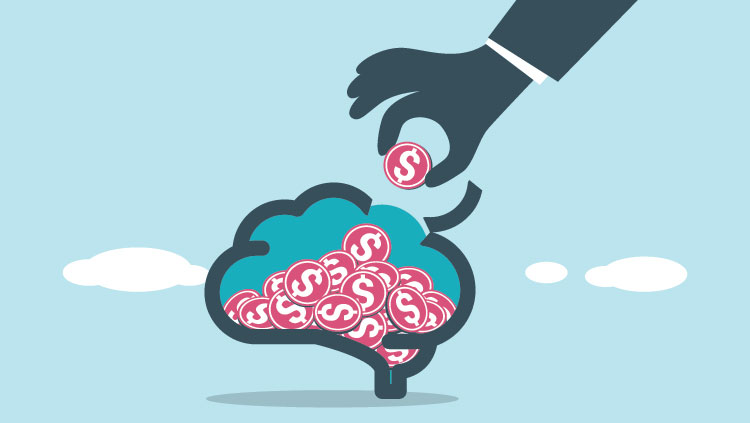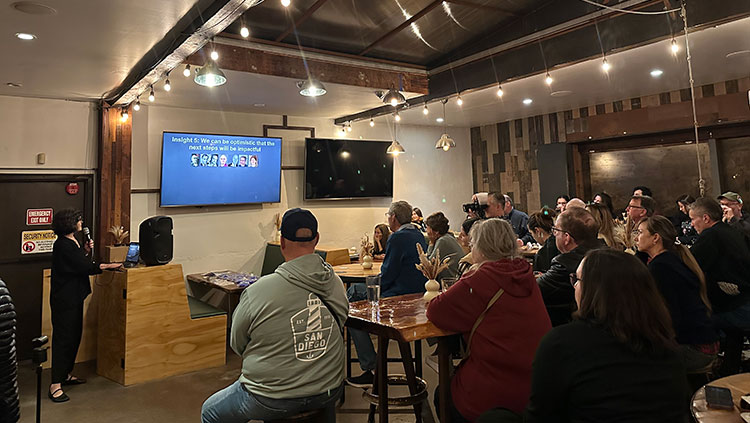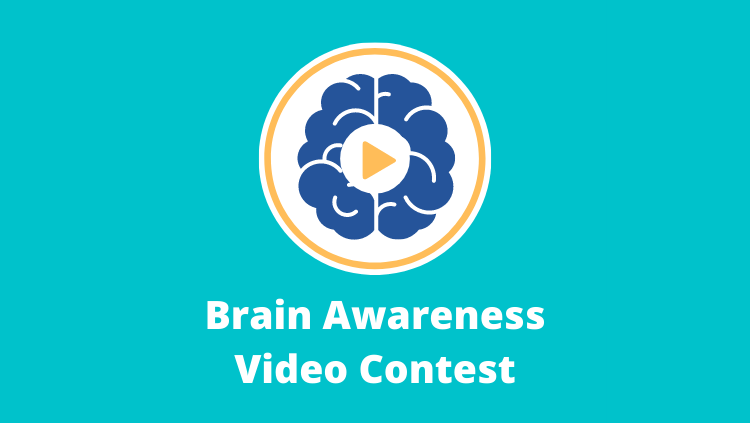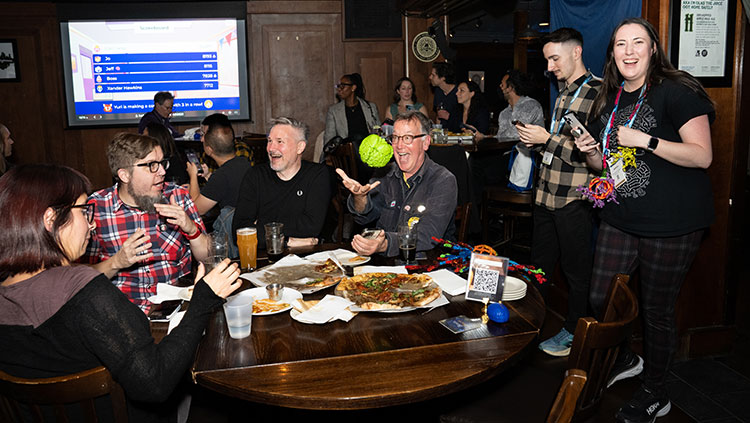Three Neuroscientists Walk Into a Bar: Research Talks Beyond the Lab
- Published17 Jan 2024
- Author Christine Won
- Source BrainFacts/SfN
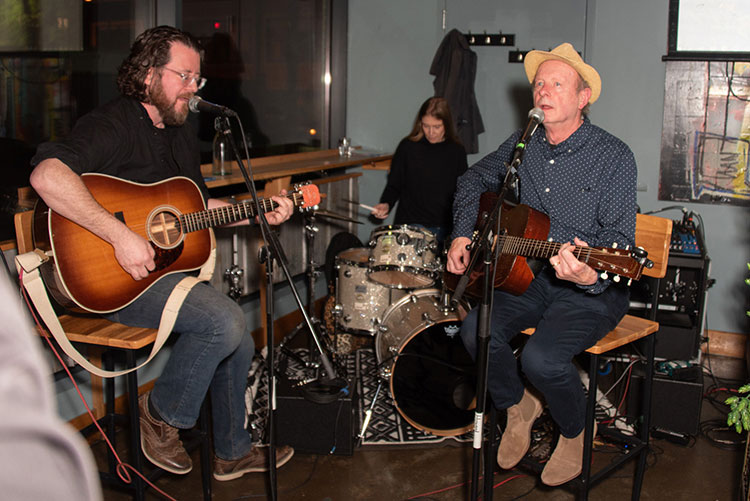
His first exposure to brains was in Eunice, Louisiana, where his father was the town’s butcher. The young Joseph LeDoux would assist his father, removing bullets from cow brains for a regional delicacy called “sweetbreads" in a time long before the threat of mad cow disease.
Now a neuroscientist at New York University, LeDoux told his life story, detailing his work on brain mechanisms behind emotions and memory to a crowd of about 100 in November 2023 at Right Proper Brewing Company’s Shaw Brewpub & Kitchen in Washington, D.C.
LeDoux joined a line-up of three neuroscientists at an outreach event hosted by BrainFacts.org. The event, BrainFacts LIVE: Journey to the Inner Cosmos, was sponsored by the Society for Neuroscience (SfN) and held during its annual meeting, offering a chance for non-scientists to hear what scientists are studying and how it relates to their daily lives.
LeDoux, a leading authority on the fear response, is also the songwriter, vocalist, and guitarist in a band he helped form called The Amygdaloids, writing and producing songs titled “Theory of My Mind” and “Anxious.”
For LeDoux, music is a way to make neuroscience approachable. “In general, the public thinks of neuroscientists as stiff, rigid people in lab coats,” he said after the band finished a set at the event. “This way, people see and hear a different perspective.”
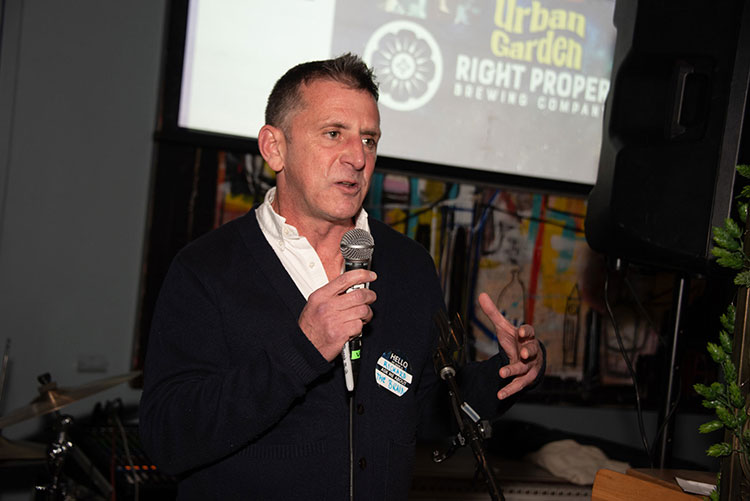
The event was the brainchild of BrainFacts.org Editor-In-Chief Richard Wingate, professor of developmental neurobiology at King’s College London, and moderator for the night, who said: “It has been one of my long-held ambitions to take advantage of the wealth of public communication expertise at the annual convention and hold events for a general audience.”
Modeled after other science-related events and festivities like Pint of Science or taste of science, the event was “to bring some of the science out of the convention center,” Wingate said.
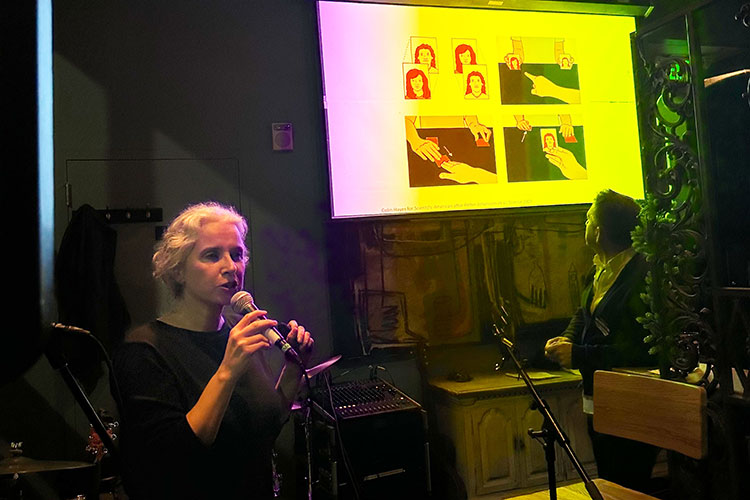
Another speaker Susana Martinez-Conde, professor at SUNY Downstate Health Sciences University, who studies visual and cognitive neuroscience, described the power of perception and how our brains deceive us. She discussed the illusion of free will and the choice blindness effect detailed in a 2005 study. “We think we own our choices. We actually don’t,” said Martinez-Conde, author of the Prisma Prize-winning “Sleights of Mind.” So if you ever fear you’ve made the wrong decision, she joked you can relax: “Your brain will tell you it’s a valid choice. Our brain is the great storyteller.”
Colleagues Jacob Vierling and Helene Rotte, both fitness trainers, attended the outreach event because Vierling had spotted a flyer earlier in the day while shopping. Without any connection to neuroscience, they came for the drinks — including a custom-made brainy beer — without much expectation but left with impromptu notes on their phones with plans to use neuroscience in their work after Martinez-Conde’s talk on the illusion of free will. “It was amazing: We seek structure even when there is none,” Rotte said. “As a personal trainer, our clients seek structure from us and they don’t even realize it.” Knowing that, they plan to incorporate a little more structure into their fitness regimens for clients going forward.
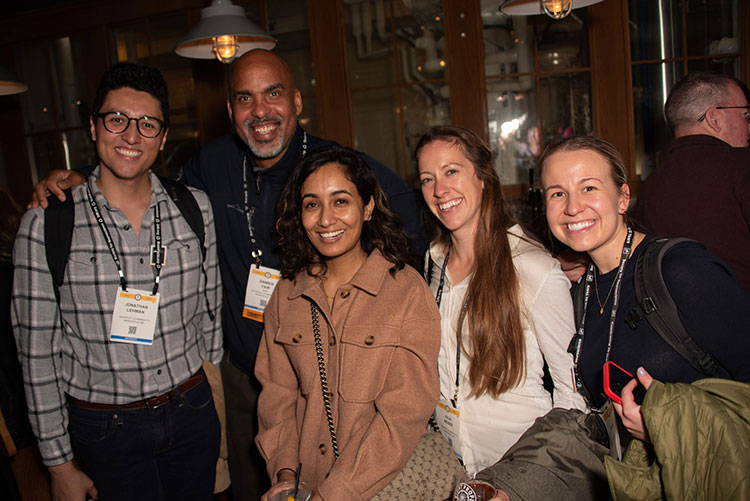
Damien Fair, Cognitive Neuroscientist and the Redleaf Endowed Director at the Masonic Institute for the Developing Brain at the University of Minnesota, discussed advances in precision functional mapping and how they shape novel therapies for neurologic and mental health disorders like depression. In particular, he shared a story about a patient with major depressive disorder whose symptoms seemingly disappeared after treatment.
Jon Ryan, a postdoctoral fellow at Emory University, came out to enjoy the music and a few beers with colleagues after presenting a poster on temporal interference (TI) stimulation — a novel technique enabling noninvasive modulation of deep brain regions — at the annual meeting. Ryan, whose research focuses on applying the noninvasive deep brain stimulation technique to examine behavioral changes related to cognition and working memory, was inspired by Fair’s talk about helping a patient. Similarly, he hopes to aid people with his technique that he says can access deeper regions in the brain. “It’s why I’m in the field,” Ryan said. “I want to help people.”
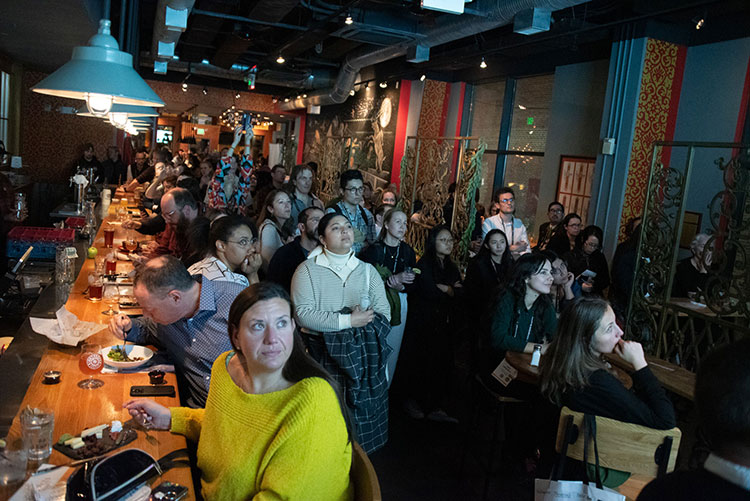
Wingate has long championed the idea of "brain capital" or empowering equitable access to knowledge about the brain, the essence of what makes us human. “The brain and the mind fascinate us all and its story belongs to everyone, not just to the laboratory and the university,” he said. “If we don't tell the stories of neuroscience research, or even of who we are and how we got here, how can we expect the next generation of young people to join us or even appreciate, let alone support, what we do?”
CONTENT PROVIDED BY
BrainFacts/SfN
What to Read Next
Also In Programs and Events
Trending
Popular articles on BrainFacts.org



